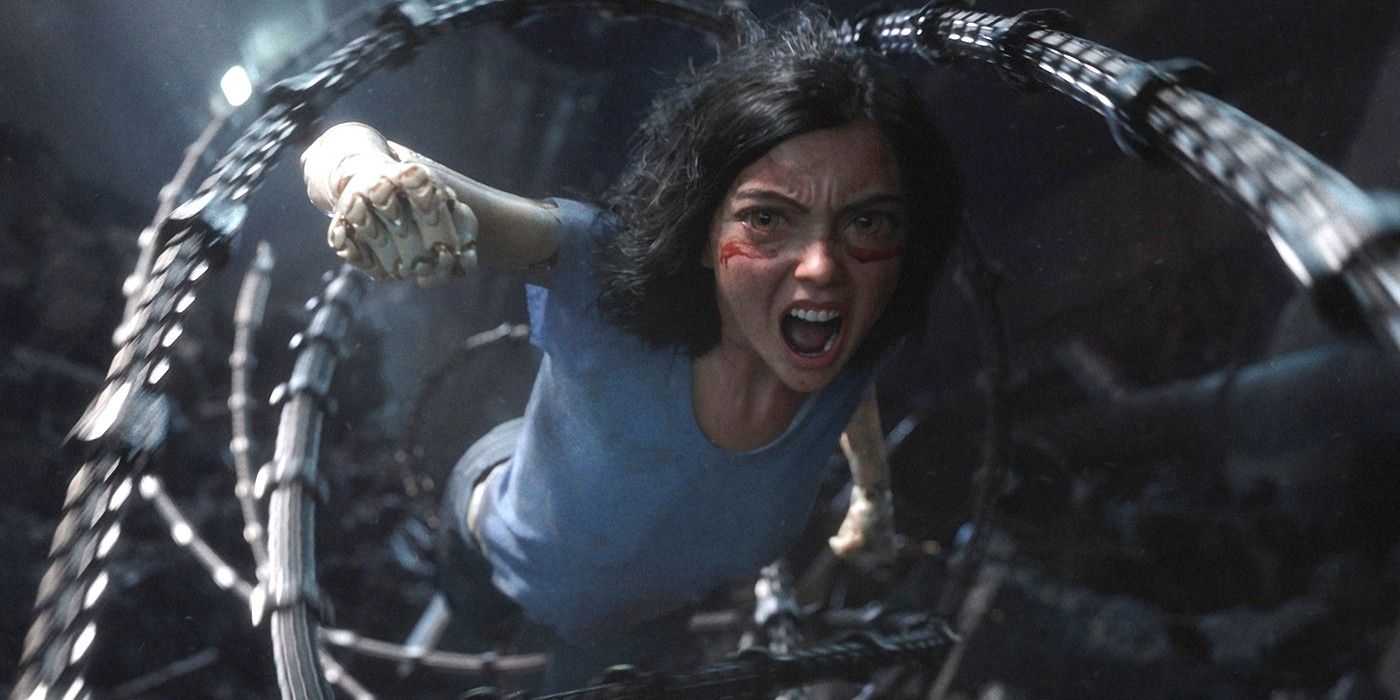Summary
- Medusa Deluxe is a fresh take on the murder mystery genre that respects and builds upon its conventions, offering a unique perspective.
- The film deviates from the typical detective-centered narrative by focusing on the characters themselves, adding depth to their relationships and motivations.
- Medusa Deluxe stands out with its bold visual style and expertly crafted one-take cinematography, creating an immersive and captivating viewing experience.
Forget Agatha Christie, Hercule Poirot, and everything you think you know about murder mysteries. Medusa Deluxe continues the recent resurgence of the genre but doesn’t play by the usual rules. From everyone’s favorite indie distributors, A24, the new film is written and directed by Thomas Hardiman, with themes that focus on entitlement, hair (unsurprisingly), and community, and filmed to appear as one 90-minute take plus excellent credits.
Set in England, in the world of competitive hairdressing, by the time the action begins, the body — which had been scalped — has already been found and removed, snipping out the usual first act of whodunits. What follows is the expected fallout as fellow contestants, their models, and other event staff scramble to make sense of the shocking loss.
Whether they’re fresh faces such as Heider Ali, Kae Alexander, and Kayla Meikle, or the sprinkling of recognizable actors that include Eastenders’ Clare Perkins and Skins’ Luke Pasqualino, the actors completely disappear into their roles. The tone is balanced excellently between humor and tension that keeps the momentum of the story driving forward. Everything from the animated opening to the closing dance number clearly shows how well-thought-out the project is as it never takes the obvious or easy route. This one-take drama is a thoroughly engaging ride that is propelling the murder mystery genre into new areas.
Whodunits Get a Fresh Trim
Rather than making its departure from common murder mystery conventions into an ironic, winking moment that mocks its predecessors, Medusa Deluxe builds on traditions in a way that respects them. For example, we still find these characters under very familiar circumstances: stuck in a building together as they wait for the police, all the while having old resentments growing and boiling over. However, usually, a brilliant or troubled detective would be the one speaking to each character and encouraging them to spill what they know.
Where this movie differs is that the police are entirely removed from the drama. By choosing not to center the action around a detective, the characters become the ones to squeeze information out of each other. This enriches the interpersonal dynamics on display, because who suspects whom says a lot about their involvement in each other’s lives, the competition scene, and the crime at hand.
In this way, Medusa Deluxe shows evident understanding of the genre, but makes a sharp departure from what could be considered one of the most essential components. Not only does the removal of the typical detective create an interesting dialogue with the genre, but it also makes sense for the setting and characters. The majority of characters here are working class women of color — Divine, for example, mentions finding extra work at a morgue to help pay the bills — and explicitly share a mistrust of the police. So, the reality is that they’re far more likely to discuss the events with each other, who they have a standing relationship with, than police that they’ve never met and instinctively recoil from.
Related: The Art of the Murder Mystery: The Best Whodunits, RankedFor a genre that is often heightened or over-the-top, as it is here, details like this are necessary to ground the movie in truth, or else it becomes impossible to care about or connect with the characters. Some installments in the recent wave of murder mysteries have prioritized silliness and theatricality over characters that we care about beyond the humor they bring, such as last year’s See How They Run.
Medusa Deluxe, on the other hand, may present us with some campy characters, but they’re ones that make sense in their world and ours. This intersection between bombastic traits and emotional truth is central to the drama. In an interview with Variety, director Thomas Hardiman says “To care about almost anything, including film, is absurd and it’s funny. I just really value people who are passionate to the point of obsession.” This succinctly sums up the movie’s winning combination of heart and silliness.
A Fittingly Bold Debut
A24
With this being Thomas Hardiman’s feature-length debut, it’s impressive how confidently styled and pieced together it is (like the coiffures on display in the film). The choice to go with a one-take aesthetic and such striking visuals as well as a relatively niche setting all come together to show that Hardiman means business. None of these choices are the default, so thought has gone into every aspect of this movie’s appearance and substance. While, of course, it’s not impossible for a first time director to have such a strong vision, it also emphasizes the role of collaboration and teamwork that is necessary for a movie to come to fruition.
Fittingly for a movie about hair dressing, Medusa Deluxe has a strong and stylish appearance. The lighting is dim, but vivid and colorful, there are mirror-paneled hallways, and of course, the one-take cinematography. This all amounts to a contained and immersive world that makes the audience feel both trapped and familiar, as do the characters. This is in no small part due to crew members such as Robbie Ryan, who has also done cinematography for directors such as Sally Potter, Andrea Arnold, and Yorgos Lanthimos, the production designer, Gary Williams, and Eugene Souleiman the hair stylist.
In some cases, choosing to give your movie the appearance of all being done in one take can feel gimmicky, but here it isn’t even noticeable at first. The camera is steady as it follows characters around the building, maintaining close quarters with the head and shoulders of its subject. By using these smooth movements and staying synchronized with the characters, our perspective as an audience feels almost ghostly or omnipresent. This builds on the decision to exclude the usual detective figure from this narrative and gives the viewer the opportunity to look for clues and come to their own conclusion.
Related: Why Murder Mystery Movies Have Become So Popular
Intricate Yet Simple Plot
A24
Something that is an issue across multiple genres, not just whodunits, is the need for twists that are constantly bigger and better than before. Of course, a well-done and satisfying twist is always going to be enjoyable, but when they’re unearned and illogical they can ruin a story.
What works so well about Medusa Deluxe is that it’s more focused on a plot that rewards by building on previously laid groundwork instead of trying to come up with a never-been-done-before conclusion. Small moments that catch your eye as being suspicious will pay off later down the line, and this adds to the feeling that you as the viewer are the detective of the story.
When the eventual reveal comes, it doesn’t disregard all the work that had been done in the earlier acts by saying something completely different had really been going on. In the same way that the movie makes some changes to the typical murder mystery structure while maintaining respect for its predecessors, it evidently respects the audience enough to know they will pick up the hints dropped throughout the runtime. Anyone can throw in a third act twist that turns the whole plot on its head, but it’s much harder to construct a narrative that consistently builds upon itself and remains cohesive for the entire time.
What makes Medusa Deluxe special is that it is so thoughtful. In an era of cinema dominated by reboots and cinematic universes that range from nostalgically charming to blatant cash grabs, to have a truly original vision given to us is always going to be a pleasure. From its eccentric but realistic characters to its intricate foreshadowing and singular visuals, the movie builds an immersive world for the viewer to discover. It acknowledges its own theatricality and uses that to its advantage in creating both humor and tension.
For fans of classic whodunits, there may not be enough of a revelation at the end, but what’s significant is that the climax holds up upon further reflection and even gets stronger with time.
Produced by BBC Film, BFI, EMU Films, and Time Based Arts, from A24, Medusa Deluxe will be in select theaters and on demand Aug. 11th.
You can view the original article HERE.

































